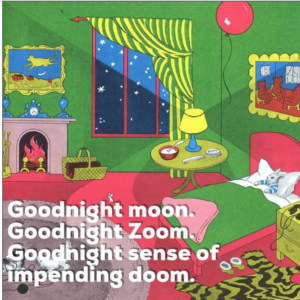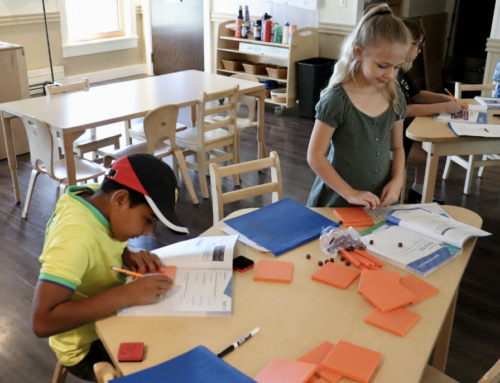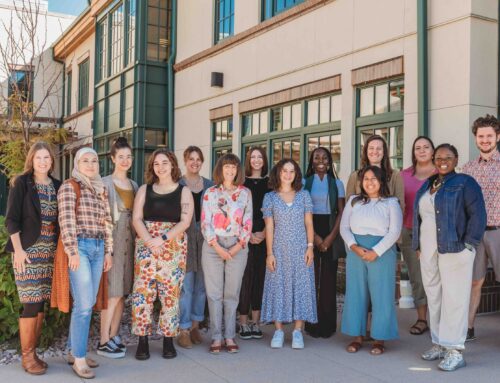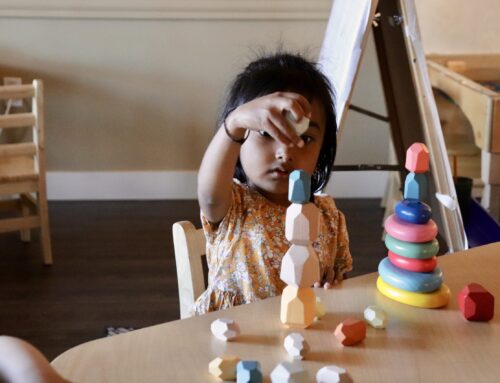A few weeks ago a group of parents met during our evening Grown Up Gathering to discuss a webinar put on by Pandemic Parenting called “Mom Guilt & ‘Good Enough’ Pandemic Parenting”. If you haven’t had a chance to watch or listen to the full recording, I recommend you spend some time with it — especially as Winter Break approaches and we all become more and more insular in response to the COVID-19 pandemic.
I was particularly interested in discussing the idea of being “good enough” as parents and as people because I find my own life overflowing with should’ve and could’ve moments in the midst of this pandemic. Will I ever be good enough?
I should’ve made one more call to a family member. I could’ve met for one more Zoom happy hour. If people are all so far away, shouldn’t I be doing everything I can at every opportunity to connect with them? Shouldn’t I be coming up with innovative ways to connect with my partner at home since we’re sharing the space a lot more than pre-pandemic life? Couldn’t I cut out another episode of “How To with John Wilson” and deep clean my shower?
The panelists in the webinar begin by working through the useful differences between shame and guilt which cause us to question if we are good enough. According to Joseph Burgo, PhD in Psychology Today “Guilt and shame sometimes go hand in hand; the same action may give rise to feelings of both shame and guilt, where the former reflects how we feel about ourselves and the latter involves an awareness that our actions have injured someone else. In other words, shame relates to self; guilt to others.” This difference can be used to think about shame as an internally-bound struggle and guilt as one which is worked through action and through others. Shame binds us to negativity and guilt can propel us out of it. I want to push myself out of these feelings which have me questioning if my pandemic life is good enough.
But really, who gets to decide if your pandemic lifestyle is good enough? Who gets to tell you if the way you are parenting is good enough? Even more troubling, who gets to tell you if you are a good enough parent? The answer is you. And your family. But mostly you.
That’s how shame and guilt intersect for me. By examining the shame I have been feeling about watching one-too-many episodes of “How To with John Wilson” I have been able to start feeling guilty about not deep-cleaning the shower. Eventually that feeling of guilt will propel me to get out the toothbrush and clean each line of grout. It hasn’t happened yet. But it will. And that’s good enough for me.
I hope that as the pandemic rages on and some people begin to celebrate a physically-distant holiday season, you will also practice a little self-compassion. In the readings supporting the webinar, psychologist Lisa Coyne, et al, discusses self-compassion as a process that begins with mindfulness and acceptance and progresses into valued and committed action. That feels a lot like working through shame and into guilt and ultimately into actionable change. It’s not necessarily life-altering. But it could be.
Will my life change for the better once I scrub my shower? Probably not. But will I feel like I made a little dent in the overwhelming bigness of this moment and our world. I sure will.
We spend a lot of time with your children each day helping them to understand the importance of their actions. Even the smallest moments have a big impact on their lives and the lives of their classmates. We teach them to understand the impact of their actions (big and small) on the whole. Your decisions, whatever propels them, also have the potential to meaningfully support your children, your family, and your self.
I hope that you find some small actions which push you out of feeling guilty. I hope these actions help you to care for yourself and your environment and your family. I hope you realize that where you are right now is good enough because it is always connected with where you have been and where you are going. Someday you’ll be ready to deep-clean the shower when you really need to. When you do, it won’t just be good enough — it’ll be good.








